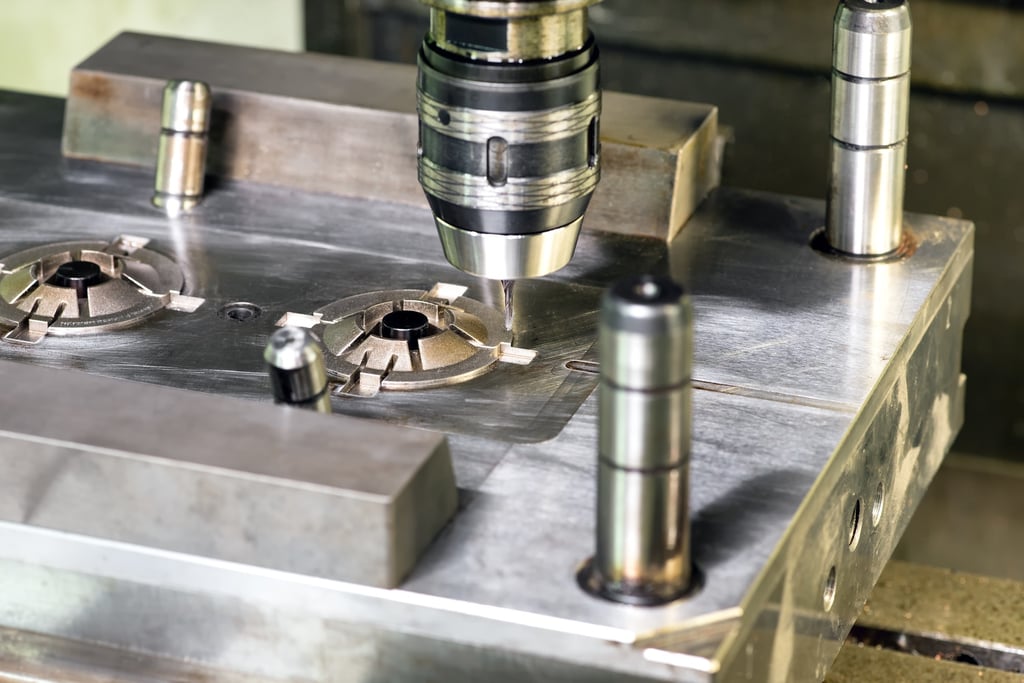
If you need a plastic part molded with extreme precision—for example, to ensure there’s no air leak between two molded sections or to be certain there’s no visible seal gap line—you likely require precision molding. The difference between a typical injection molded part and a precision molded part is the tolerance, or acceptable range of variation in dimension: While the majority of injection molded parts have a tolerance of +/- .005″, precision molding holds tolerances between +/- .002″ and +/- .001″ (or less, in some cases).
Let’s say, for example, you’re planning to manufacture a military projectile. In order for the projectile to fit properly in the firearm, handle the acceleration when it’s launched, and explode on impact, it requires very high precision.
If your application requires precision molding, you can’t leave anything to chance—so you’ll want to ask yourself the following three questions before you begin the process:
1. Have you determined which areas of the mold require precision?
Because precision molding is more expensive than typical injection molding, be certain which aspects of your part require tight tolerances—and whether those tolerances can be achieved through injection molding—before moving forward. For example, a surgical handle may only require precision for the piece that will connect with a pin, not the entire handle. Identifying your precision requirements from the get-go ensures you’ll get what you need without wasting money. In the case of the surgical handle, your injection molding partner may advise you to add the tolerances you need through tooling after the injection molding process is complete.
2. Have you selected a plastic material with low shrinkage?
The plastic material you select for your part makes a big difference in whether you’ll be able to do precision molding. For example, polypropylene has a shrinkage range of +/- .014″ to +/- .022″, with an average of +/- .018″. This is a wide range for shrinkage, which makes hitting a specific tolerance extremely difficult. If you’re molding a toothbrush (which commonly uses polypropylene), dealing with shrinkage isn’t a big concern, as the toothbrush will function appropriately regardless of whether it’s slightly bigger or smaller than its counterparts. Acrylonitrile butadiene styrene (ABS)—another common thermoplastic polymer—has a much narrower shrinkage average of +/- .006″. That gives you a much better chance of hitting a tighter tolerance, but it still won’t reach the +/- .001″ or +/- .002″ tolerance needed for a precision part.
One way to hit high tolerances with your plastic material is to add glass or another filler resin (like carbon fiber or mica) into the material. This can minimize shrinkage and warp by providing more structure in the material. For example, if you include long glass fibers in a polymer material, the part will shrink more perpendicular to those fibers.
3. Can the mold manufacturer you’ve selected tool with high precision?
The process of creating plastic parts with tight tolerances begins with a high-precision mold. If each plastic part you create is not identical, you won’t have a precise product—and a precise mold ensures there’s no variation for each part. Because of this, it’s extremely important to select a mold manufacturer who understands the slow, steady process of building a high-precision tool. Keep in mind that selecting a mold manufacturer that specializes in rapid tooling is likely not your best option, as the goal of rapid tooling is to finish the mold quickly—but not necessarily precisely.
Let’s get your precision molding project started.
We have years of experience in precision molding, and would love to answer any and all of your questions. You can either contact us with those questions, or, if you’re ready to get your project started now, simply request a free quote. Once you submit the short form, one of our representatives will be in touch with you shortly to get the ball rolling.



